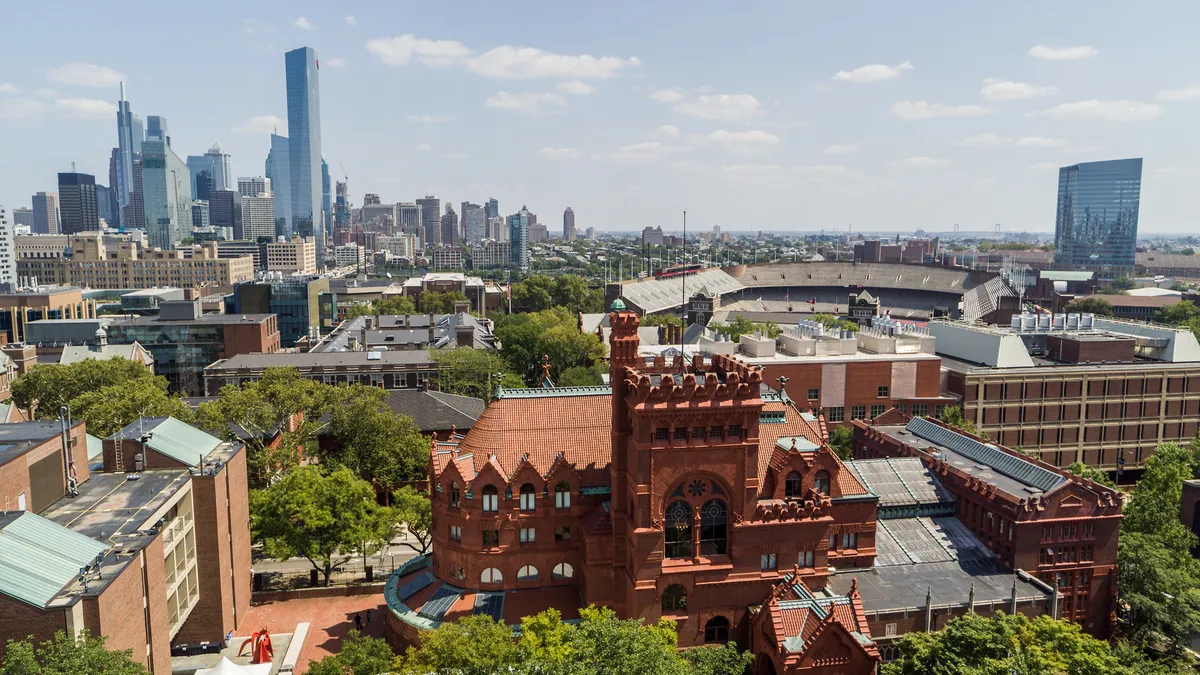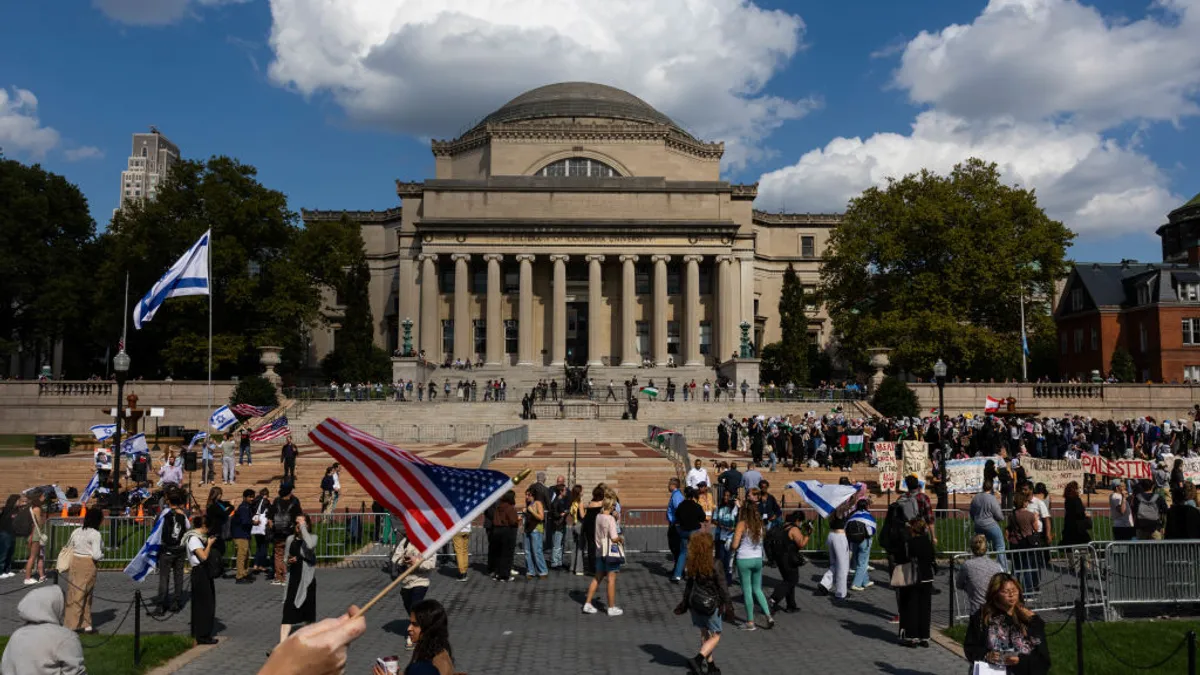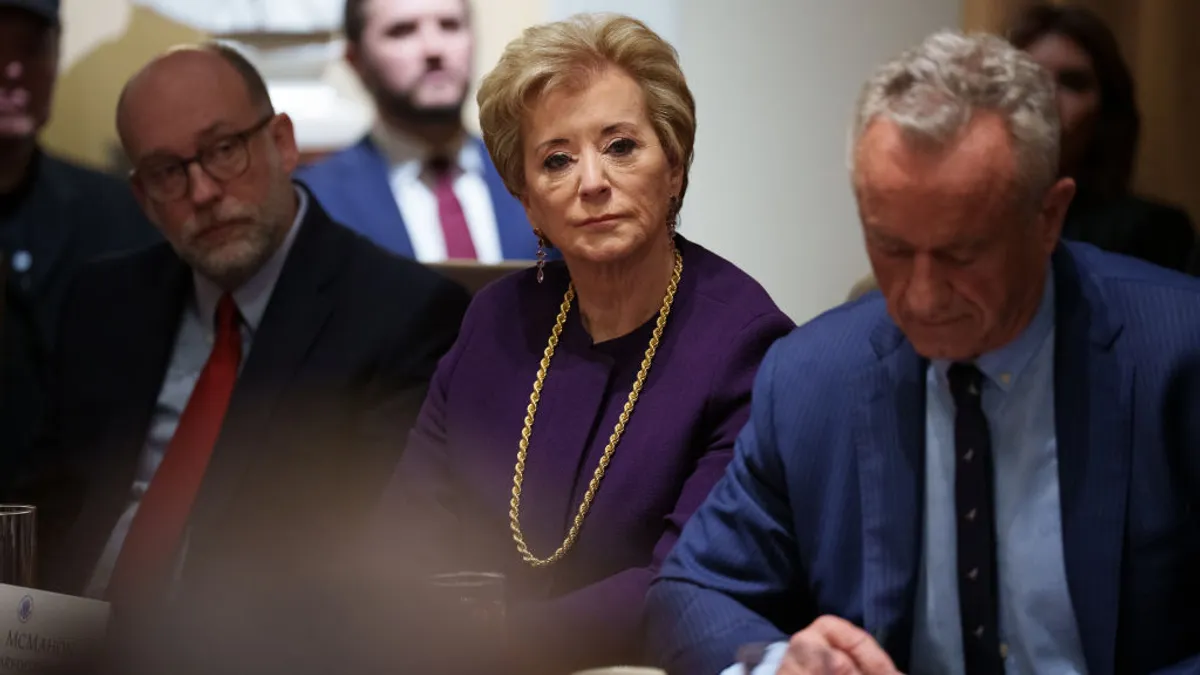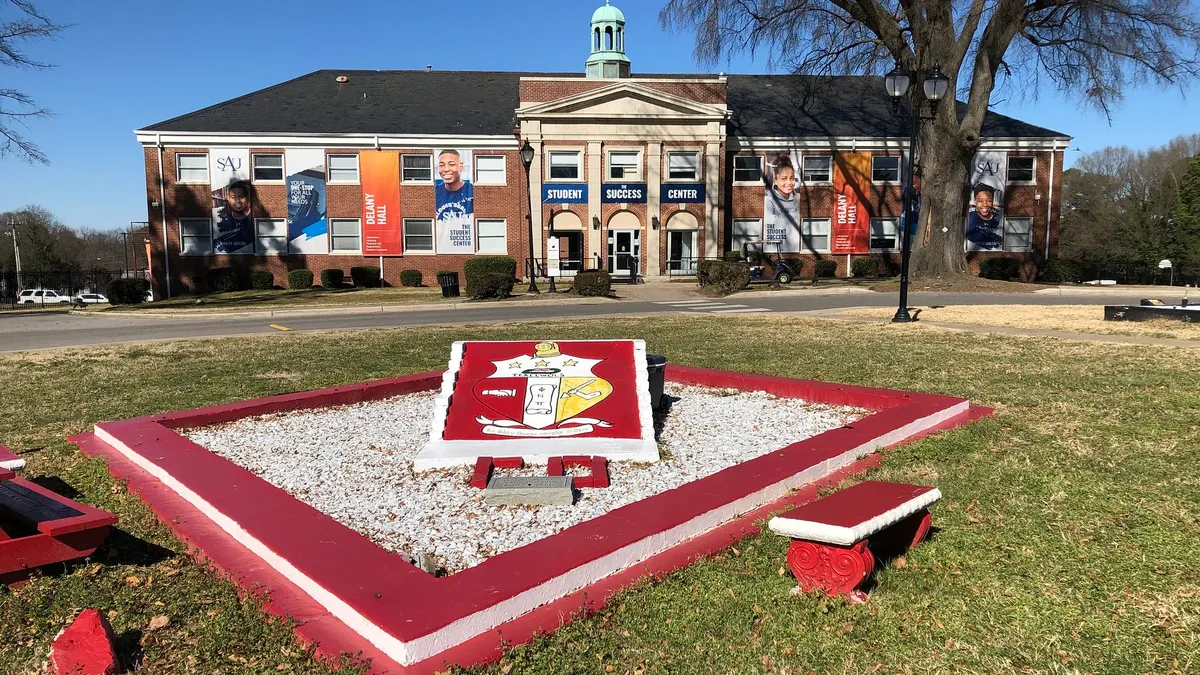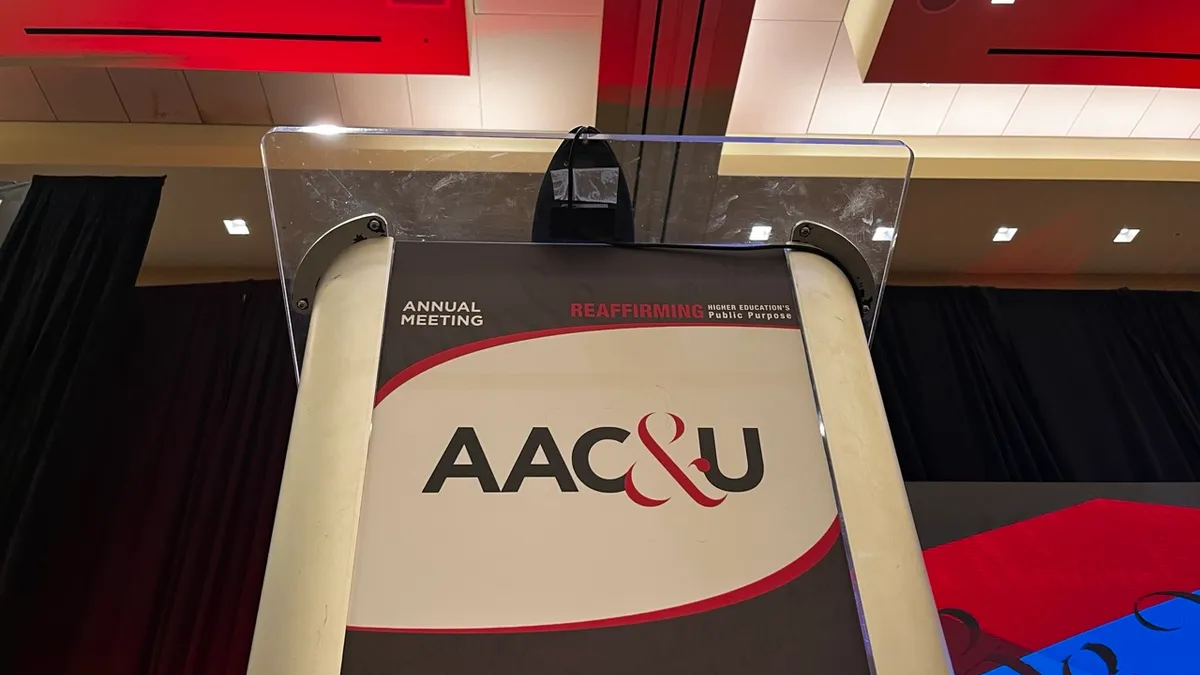By far, one of the most prolific college presidents on social media is Walter Kimbrough, leader of the historically Black Dillard University, a private institution with an oak tree-studded campus in the heart of New Orleans.
Kimbrough is the self-dubbed “Hip Hop Prez” online, where he routinely comments on the political issues du jour and those affecting higher education. But his reach extends beyond Twitter and Instagram.
In his decade at Dillard, Kimbrough is credited with growing the HBCU’s endowment by 115%, to about $105 million, and significantly bolstering philanthropy. One of his most recognizable achievements is helping ensure the federal government forgave a roughly $160 million loan made in the wake of Hurricane Katrina.
He’s stepping down, and Dillard’s trustee board believes it’s found the “dynamic, charismatic and visionary leader” to fill his big shoes: Rochelle Ford, currently dean of the School of Communications at Elon University, a private nonprofit institution in North Carolina.
Ford has been dean of communications since July 2018, having come from Syracuse University, a private nonprofit institution in New York. Prior to that, she was a faculty member at Howard University, another private HBCU in Washington, D.C.
She was part of revamping the structure of Elon's communications school, reorganizing programs in areas such as cinema and television arts, and media analytics.
Ford begins July 1. We spoke to her about her vision for Dillard, as well as the most pertinent challenges facing it and other HBCUs.
This interview has been edited for clarity and brevity.
HIGHER ED DIVE: What drew you to the Dillard presidency?
ROCHELLE FORD: Dillard has an amazing legacy of preparing its students and its alumni base to live ethically and also really focus on thinking and communicating precisely. And that drew me to Dillard.
I also know that its alumni act courageously. I've gotten to speak to some of them. And that's kind of the history of HBCUs. I'm a second-generation HBCU alum. That's what my parents were drawn to. That's what I was drawn to. I wanted the opportunity to give that back.
It's sponsored by the United Methodist church and also by the United Church of Christ. And I have belonged to both of those churches throughout my lifetime. It just made perfect sense to help take an already amazing, legacy-rich university and continue to help it thrive and to be sustainable.
What’s something you will do when you first arrive on campus?
Meet the people. Meet everyone, like those who keep the campus looking beautiful. I want to meet the groundskeepers. I want to meet the maintenance crews. I want to meet people who are working in the dining halls. I want to meet the students, the faculty. I want to meet the people and I want to hear their stories.
I want to listen — listen to what they’re excited about. Also what brought me to this position is the optimism, the potential, the hope that exists and what we can do together. And I want to hear what they believe is possible. What are the strengths? What are some of the challenges? Because, you know, there's challenges, there's hurricanes. I already took my hurricane preparedness class.
Your predecessor has a very established brand online. Is that a role you envision taking?
I'm here to represent Dillard. And I've been active and was an early adopter of Twitter. In fact, I was a very early adopter even of Facebook when it was still at Harvard and they were expanding it out to other people with “.edu” addresses. So I've been a constant user of social media and I have a nice-sized following.
But I think the more important use of social media is to build community and a sense of belonging. How can I bring people together — the business community, how can I bring them into Dillard to form partnerships? How can I work more closely with the local, state and federal governments, nonprofits, building that community, building that partnership? My goal is to listen, social listening, and to then make connections.
So if I'm going to engage in the conversation, it’s how can I bring Dillard to the table. We want to use social media to attract leaders and thinkers and artists. Using social media will be an opportunity to say, "Hey, this is a great place to come and learn together." How do I let people know Dillard has a nursing program? Because we need nurses like nobody’s business. How do I attract folks into that program, or people who have an interest in STEM?
President Kimbrough also is recognized for helping boost philanthropy. What are your thoughts on growing gift-giving, especially when top-ranked universities are still getting donations worth millions of dollars?
If people want diverse talent, you need to go where it has historically been groomed and built the middle class. You need to support the places that have produced the doctors, the lawyers, the nurses and the teachers. If you're looking for Black and brown faces, then you need to come to Dillard, or another sister HBCU. Because we have been doing this since we were founded and we’ve always punched above our weight class.
So my message is, "Don't tell me you can't find diverse talent." We have the student base, we have the intellectual powerhouses to address issues of disparity and some of the major problems the world is facing, and we’re going to bring a different and diverse perspective and an understanding, particularly of Black-identifying people, because that’s what we do.
If everyone has continued to state that diversity, equity and inclusion is part of their social justice missions, then let's move commitment into action and come and partner with the school who has a demonstrated track record of excellence.
Dillard has a high share of Pell Grant-eligible students. With federal relief money drying up, and the coronavirus still lingering, how will you support this population now?
We have to continue not only with alumni giving, but we also have to continue with other types of philanthropy and partnership. I keep leaning into the word community — because we have to have people's time and talent to continue supporting this population. It takes a dual investment.
One of the key things that I'll be driving home is continuing to fulfill philanthropy and looking at additional revenue streams that we can build to meet the needs of our student body. There's a lot of things with companies, nonprofits, etc., that haven't yet been fully explored.
Instead of me paying a faculty member, can that faculty member be underwritten by a company, for instance? That would free up resources.
What’s something lawmakers or corporate partners get wrong when it comes to HBCUs?
We have to be a first thought, not an afterthought. It needs to be a strategic business decision.
Dillard has a lot of relationships and that’s important. Yes, we are an HBCU, but we also are an independent private college. There's a coalition of people advocating for the local, state and federal governments for those. We will be working with all of our coalitions to advocate for additional funding support.
What’s the biggest challenge facing Dillard, and HBCUs as a whole?
We have to continue to make sure that we are prepared and ready to sustain the changes that are happening with hurricanes and tornadoes that keep plaguing that area so we can continue to deliver an amazing education. I'm so proud of the dedication of our faculty and staff that classes went uninterrupted. They evacuated for Hurricane Ida and classes continued.
We have that sort of resiliency already, but we also have to continue to make sure that our infrastructure on campus, the facilities and that the grounds are prepared for that inclement weather.











